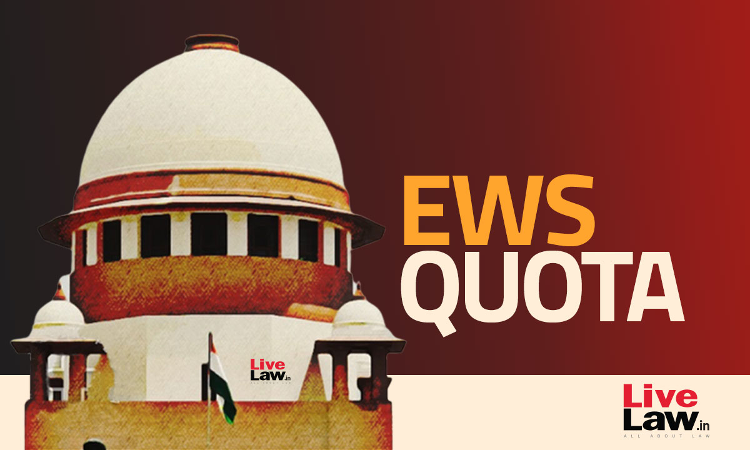EWS Reservation- Supreme Court Constitution Bench Hearing DAY 2- LIVE UPDATES
LIVELAW NEWS NETWORK
14 Sept 2022 10:33 AM IST

Live Updates
- 14 Sept 2022 12:35 PM IST
Kumar: It'll go on increasing year after year. Possibly there will be more number of posts than applicants. No one was given a quota like this on a platter. My first ground of attack is giving a quota of 10% of a small population of a privileged class- what's the foundation?
- 14 Sept 2022 12:30 PM IST
Kumar: Only 15% of population will be beneficiaries under EWS. About 30% of this who are not covered will be economically weak. 5% of the population of the country..
CJI: Will be the target population.
Kumar: Yes, we don't have data on whether they're backward, represented.
- 14 Sept 2022 12:29 PM IST
Kumar: [provides details on latest census] The backward classes under 16(4) will be about 85%. Without any survey, constitution says all those who aren't backward are EWS.
CJI: It doesn't say that.
Kumar: No no, it says if you're under 16(4), you're out, if not, you're here.


